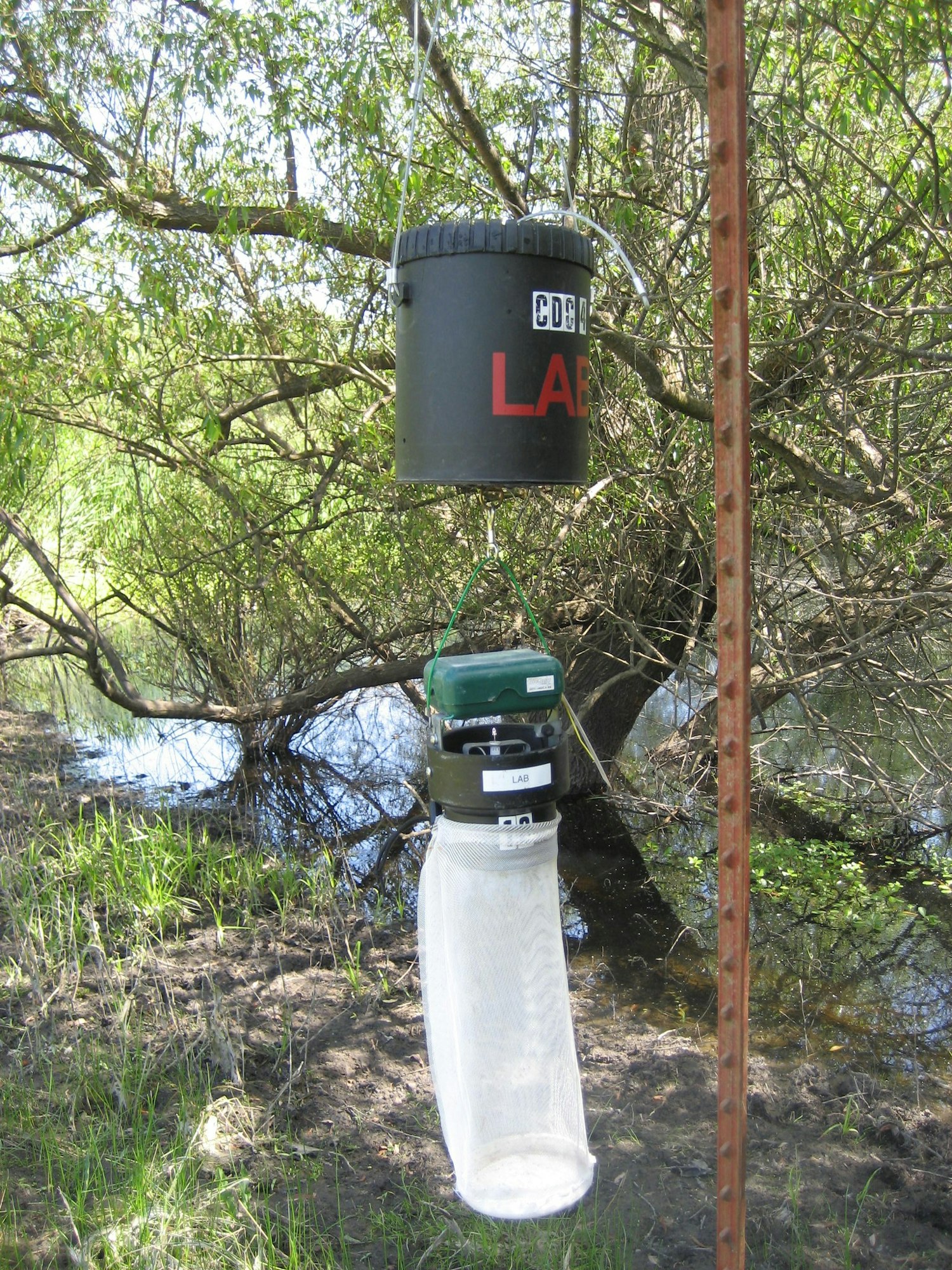Surveillance
The Alameda County Mosquito Abatement District is dedicated to protecting the public from both the discomfort of mosquito bites and potential mosquito-borne diseases. This responsibility includes monitoring the abundance of adult and immature (larval/pupal) mosquitoes, and mosquito-borne disease occurrence over time and space. The practice of monitoring both mosquito densities and the diseases they carry is termed surveillance. Surveillance provides the District with valuable information on what mosquito species are present, when they occur, where they occur, how many there are, and if they are carrying diseases that affect humans. Equally important is the use of surveillance in evaluating the effectiveness of control actions in reducing mosquitoes and mosquito-borne diseases.
District technicians inspect known mosquito breeding sites a regular basis. Larval surveillance is conducted by the use of a “dipper.” This is a one pint cup attached to the end of a stick. Water is dipped or sampled for the presence of mosquitoes. Samples are examined in the field or laboratory for the abundance, species, and life-stage of mosquitoes present. This information is compared to historical records and used as a basis for treatment decisions.
Adult mosquito surveillance is done for two primary reasons. First, it allows the technician to locate new, undiscovered sources of larval breeding, or calls attention to the fact that a known larval breeding source needs to receive closer inspection and treatment. Second, the collection of live adult mosquitoes is useful for virus testing. Adult populations are sampled using several trap types .
The District participates with the California Department of Public Health (CDPH) and the University of California in performing surveillance for mosquito-borne diseases, especially West Nile virus. The District is a part of the CDPH’s dead bird surveillance program, which encourages County residents to report dead birds that may be tested for West Nile virus infection. And as mentioned, the District collects live adult mosquitoes and tests them in house for West Nile virus, St. Louis encephalitis, and western equine encephalitis.


